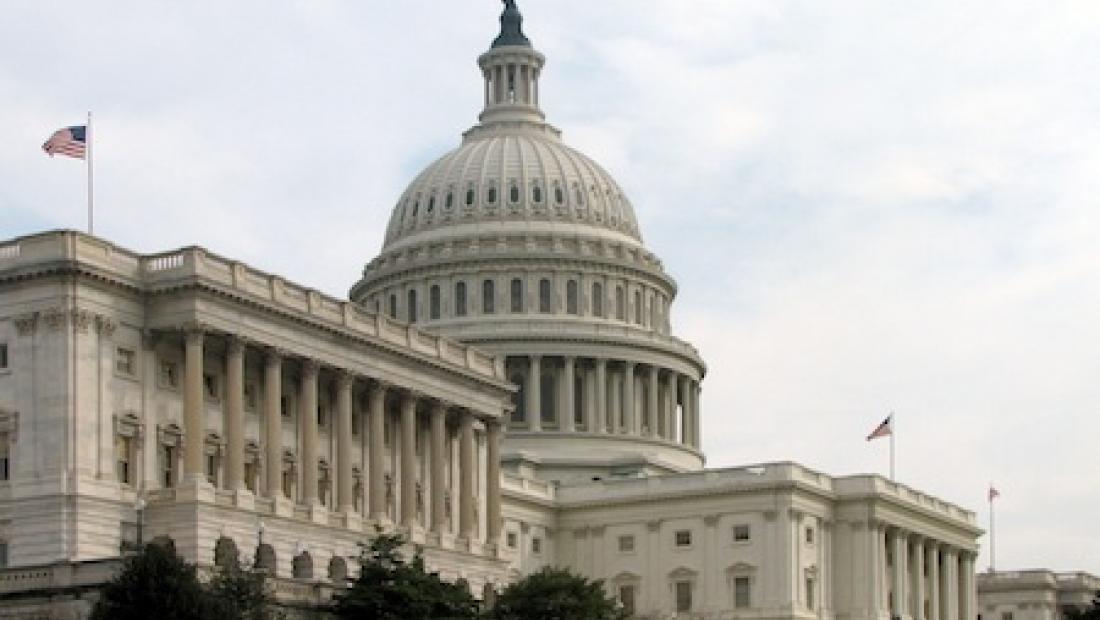Hill Dems Back FCC Challenge, Attack Kavanaugh

The smarter way to stay on top of broadcasting and cable industry. Sign up below
You are now subscribed
Your newsletter sign-up was successful
A group of 103 members of Congress have filed an amicus brief in support of Mozilla et al.'s challenge to the FCC's network neutrality reg rollback. Many of those are also opposing the nomination of Judge Brett Kavanaugh because of his views on FCC net neutrality regulation and authority.
In a press conference with reporters Tuesday, Sen. Ed Markey (D-Mass.) who is spearheading net neutrality efforts, said that if Kavanaugh is approved for the Supreme Court, his extreme views on net neutrality, particularly that ISPs have a First Amendment right over their subs' access to Web content, could go mainstream.
Kavanaugh, a judicial conservative who has participated in numerous cases involving communications issues, was tapped by the president July 9 to succeed Justice Anthony Kennedy. Kavanaugh is currently a judge on the U.S. Court of Appeals for the D.C. Circuit, which is the court of primary jurisdiction for FCC decisions.
Related: Communications Workers Oppose Kavanaugh
Back in October, he dissented from a decision by the full court not to grant ISPs request that it reconsider its decision upholding the Title II reclassfication, a reclassification Kavanaugh said was unlawful and should have been vacated.
Specifically, Kavanaugh wrote that "Internet service providers have a First Amendment right to exercise editorial discretion over whether and how to carry Internet content."
That is the view that Democratic legislators are most concerned about.
The smarter way to stay on top of broadcasting and cable industry. Sign up below
Markey was joined on the amicus brief and on the call pushing back on the Kavanaugh nomination by Sens. Ron Wyden (D-Ore.), Richard Blumenthal (D-Conn.) and Rep. Anna Eshoo (D-Calif.).
Their point in filing the amicus (friend of the court) brief was to provide the court with guidance on what Congress meant in the 1996 Telecommunications Act, which was that the FCC should be the cop on the internet regulation beat, a beat they say the FCC abandoned in rolling back rules preventing blocking, throttling and paid prioritization, and rules that Kavanaugh has said were illegal.
Markey pointed out that he introduced the first net neutrality bill (when he was a member of the House), while Wyden said he had introduced the first Senate version. Eshoo was a conferee on the 1996 Act, she said. Their point was that they were in a position to tell the court what Congress' intent had been, which was that as the premiere expert on communications, the FCC was meant to be that cop on the beat.
Markey said he was convinced that the fate of the net neutrality rules would wind up in the Supreme Court, and if Kavanaugh were on that court, he "will kill those rules forever." He would, or course, have to have four other votes to do so.
If that happened, said Markey, the winners would be Big ISPs and the losers the public.
Wyden said that if Kavanaugh were seated on the High Court he would be willing to give cable companies--in this case wearing their ISP hats--"unlimited power to decide what the consumer wants to see."
Blumenthal, who is on the Senate Judiciary Committee that begins its nomination hearings on Kavanaugh next week, said he would be asking the judge to defend his net neutrality dissent and its, Blumenthal would suggest indefensible, proposition of ISP's First Amendment rights to control net content.
Contributing editor John Eggerton has been an editor and/or writer on media regulation, legislation and policy for over four decades, including covering the FCC, FTC, Congress, the major media trade associations, and the federal courts. In addition to Multichannel News and Broadcasting + Cable, his work has appeared in Radio World, TV Technology, TV Fax, This Week in Consumer Electronics, Variety and the Encyclopedia Britannica.

